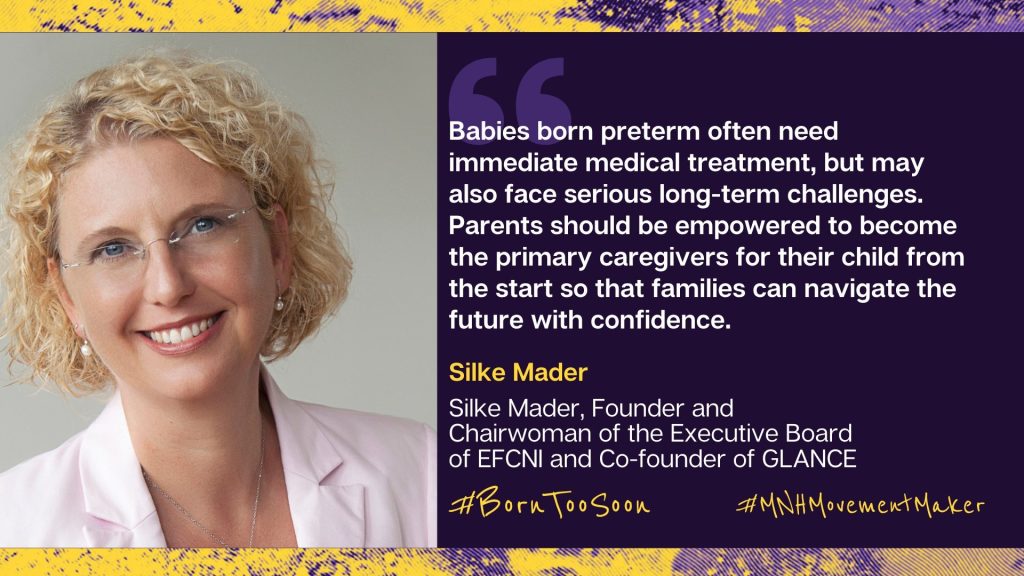
© pmnch
With preterm birth now being the leading cause of child deaths before the 5th birthday, 70+ organisations in 45+ countries, including EFCNI, have worked together to develop the report ‘Born too soon: a decade of action on preterm birth’, setting an ambitious agenda to reduce the burden of preterm birth. This report shines a spotlight on country achievements that can inform and inspire further progress, roots the agenda for preterm birth within the Sustainable Development Goals (SDG) and puts affected communities, women, babies and their families at the centre.
According to a new report released by United Nations agencies and partners, an estimated 13.4 million babies were born pre-term in 2020, with nearly 1 million dying from preterm complications. The past decade has seen no measurable change in global preterm birth rates. Millions of survivors of preterm birth have mild to severe disabilities that follow them throughout their lives. Many of these disabilities are preventable and are a sensitive marker of quality of care.
The report ‘Born too soon: a decade of action on preterm birth’ was launched at the International Maternal Newborn Health Conference (IMNHC) in Cape Town this month. It is structured around the evidence of preterm birth and sets actions needed to reduce the burden of preterm birth, stillbirths and vulnerable babies, by ensuring that every woman and every newborn, even if they face a preterm birth, can survive and thrive. It provides a comprehensive overview of the prevalence of preterm birth and its profound impact on women, families, societies and economies. The report calls for collective actions, focusing on two priority tracks: prevent preterm birth and improve newborn care.
Leadership at the highest level as well as strong and empowered grass-roots movements are needed to increase investments, accelerate implementation, better integrate with other sectors and fully leverage innovations.
- Increased investments: Mobilizing international and domestic resources to optimize maternal and newborn health, ensuring high quality care is provided when and where it is needed.
- Accelerated implementation: Meeting country targets for progress through implementing established national policies for maternal and newborn care.
- Integration across sectors: Promoting education through the life cycle; supporting smarter economic investments, with co-financing across sectors; strengthening climate adaptation responses across the life-course; and advancing the coordination and resilience of emergency systems.
- Locally driven innovation: Investing in locally led innovation and research to support improvements in quality of care and equity in access.
EFCNI’s Chairwoman Silke Mader was honoured to be part of the Born too soon Global Advisory Group, as well as #MNHMovementMaker for the IMNHC 2023. She is proud to have contributed to the report and conference.

To summarize, ‘Born too soon: decade of action on preterm birth’ seeks to equip and energize all of these constituencies with new data: scientific evidence, country learnings and the powerful lived experiences of parents and families, involving both the head and the heart, to make the case for urgent action.
More information and the full report available at: Born too soon website
Spread the word and promote the Born too soon report: Communications toolkit

